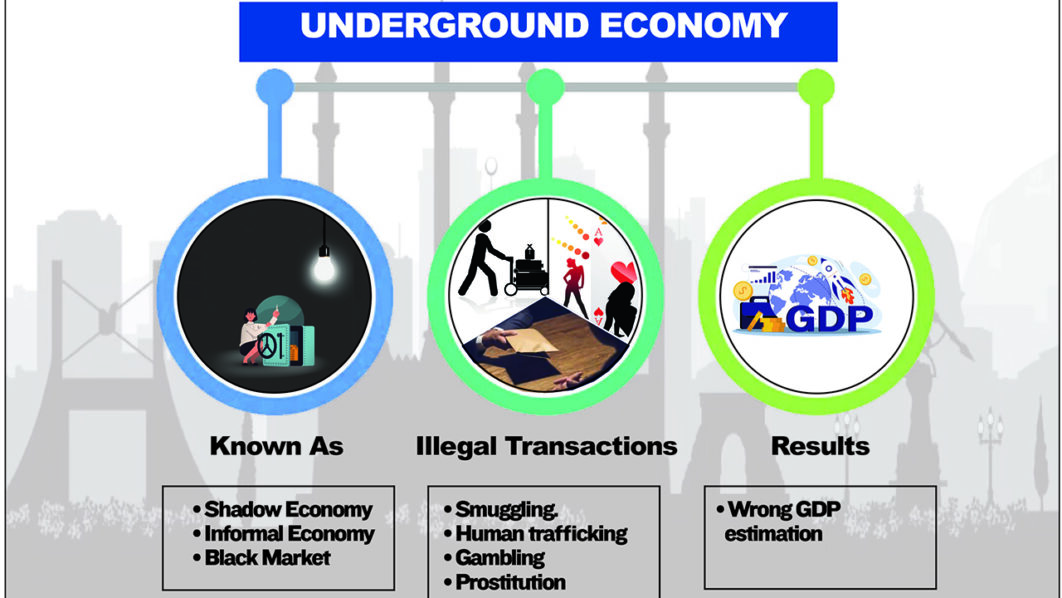
• Country motivated to reclaim lost Africa’s top spot
• Owoh: Rebasing is timewasting in economy that is persistently debasing
• Nigeria alone on this path, says Uwaleke
• New GDP may leave wider gap in revenue-output ratio
Reminiscing Lagos abortion law controversy and Jonathan’s childbirth control, the country may be on a collision course with multiple religious and cultural institutions as well as humanitarian organisations in the coming months unless it prevails on the National Bureau of Statistics (NBS) to withdraw the planned inclusion of activities considered as illicit and immoral into the new output computation template.
The planned gross domestic product (GDP) rebasing, which is already being interpreted as part of the desperate plan by the current administration to artificially increase the value of the economy, seeks to formalise the $146 billion underground economic activities, with a focus on human trafficking, prostitution and smuggling, which the government itself has often described as economic sabotage.
A 2022 research conducted by Tari Karimo, Mohammed Tumala and Ibrahim Wambai and published by the Central Bank of Nigeria (CBN) puts Nigeria’s shadow economy, which includes both informal transactions and other concealed activities, at 58.2 per cent of the GDP, which is currently estimated at $252 billion.
Already, the plan as disclosed by an official of the NBS, last week, has raised questions about the administration’s commitment to stemming the vices. It may also increase the moral burden of governing a complex country as Nigeria on President Bola Tinubu, whose communications office is yet to officially respond to the controversy.
However, it is not the first time a government institution would throw up statements that portray the administration as attempting to legitimise or formalise activities considered illicit.
Chairman of the Presidential Committee on Fiscal Policy and Tax Reforms, Taiwo Oyedele, also disclosed that illicit funds, laundered money or proceeds of crimes would also be when the controversial tax reform bills eventually become laws.
“You have to pay tax regardless of the source of the income, and once we find that you have revenue, including from the international data we are going to be receiving, and you cannot explain it, you have to pay the tax,” Oyedele said of the plan, which he hoped would be enforced alongside a voluntary disclosure.
Grey economies across the globe are worth billions of dollars. However, some governments are sceptical about the unintended signals they send when the activities are included in the computations of the value of the formal economies.
Some countries, however, have braved the odds and included untaxed activities in their economies. For instance, over a decade ago, the European Union (EU) mandated member states to take shadow economies into cognisance when computing economic outputs. By implication, prostitution, drugs and other smuggled goods sale became part of the countries’ GDP.
The policy implementation significantly increased the output level of the region, as Nigeria is wont to experience if the black market economy makes its way into the formal output.
Underground economies could increase the sizes of economies substantially. In 1987, Italian GDP ballooned by over 18 per cent on the account of inclusion of the black market economy. It surpassed the United Kingdom to become the fifth-biggest economy.
Also in 2013, the value of the dark economy of average EU members was estimated to be equal to 19 per cent of their GDP, according to Prof. Friedrich Schneider, a German economist. The ratio of Nigeria’s underground economy, some experts have observed, could be much higher considering the pervasiveness of the poverty and greed level, which fuel such activities.
Whereas the likes of The Netherlands included prostitution in its GDP much earlier than the rest of the EU members where such is legalised, some countries captured the dark economy for data comparison and analysis.
For the first time, Nigeria is toying with the idea of ‘formalising’ prostitution (a social vice with huge religious connotation), smuggling and human trafficking in what the government’s critics have described as desperation.
Previous attempts at toying with such landmines were rebuffed. For instance, ex-President Goodluck Jonathan suffered a considerable goodwill loss when he attempted to push for birth control legislation. Lagos State Government also came under fire over the controversial abortion law.
There are several other issues that live with Nigerians, but the citizens would prefer the government pretend they do not exist than to attempt to bring them into governance space or even talk about them. Prostitution is one of such issues the citizens would rather the government pretends does not exist.
Already, a public analyst and professor of capital market, Uche Uwaleke, described Nigeria’s gambit as a solo journey in Africa as no country in the region has done the same.
“I don’t think it would be a good decision for us to include those activities. No single country in Africa does this, and including them tends to legitimise these actions,” the renowned scholar said when he appeared on Arise TV at the weekend.
Tracking the numbers in the underground economy is part of the overall rebasing plan, which is to be effected this month. The government will be changing the base year of GDP computation for the first time since 2014 – a process that picked 2009 as the base year for both GDP and consumer price index computation.
NBS said it has adopted 2019 as the new base year for its stability, giving a nine-year gap. From January 2010, the current base year, to January 2019, the general price index grew by 170 per cent or nearly threefold – from 103.1 points to 276.6 points. When the price benchmark is adjusted accordingly as planned, the real output could triple after the rebasing.
But here is the bigger picture. The government is looking at swelling the GDP figures with the inclusion of the digital economy, (e-commerce, fintech and online services), emerging sectors (modular refineries, pension fund administrators and quarrying industries) and social programmes.
A rebased GDP, indeed, will increase the nominal materially and reduce the country’s debt-to-GDP ratio, giving the government sufficient rationalisation for fresh debt accumulation as suggested by some analysts.
The government, for convenience, has anchored its debt sustainability argument on a low debt-to-GDP ratio. Sadly, the key drivers of the GDP, agriculture and the real sector, are low in revenue, which the government uses to pay up or service its debt. The high cash cow (oil and gas) contributes less than 10 per cent to output.
A higher GDP also means a lower revenue-to-GDP ratio. This will leave the government more dissatisfied about the growth of its tax and create more room for the International Monetary Fund (IMF), and the World Bank to put more pressure on the government to buckle up on revenue sourcing.
Currently, Nigeria ranks among the least countries in the world in tax-to-GDP ratio. At about 10 per cent, Nigeria is far lower than Africa’s 16 per cent average.
The Tinubu administration has set an ambitious goal of raising the threshold to 18 per cent in the next two years. While some progress may have been made with the recent improvement, a much higher output level would mean the Federal Inland Revenue Service (FIRS) would double down on its effort to hit the goal.
Whereas the tax-to-GDP ratio sounds theoretical, the metric gives the idea that a government would require a certain level of revenue adequacy to finance infrastructure to support a large economy which is reflected in a larger GDP .
There has been unease since Nigeria slipped to the fourth position in Africa ranking on account of a sharp depreciation of the naira witnessed since the 2023 foreign exchange market reform. Today, South Africa, the biggest regional economy, is about 47 per cent bigger than Nigeria, which overtook the former after the 2014 rebasing.
A $1 trillion economy, which Tinubu said his administration is committed to achieving, would trump the current three biggest African economies – South Africa, Egypt and Algeria. The trio are valued $987 billion.
In naira terms, Nigeria’s economy has grown over the years. But it has slipped to 44 per cent of its dollar value at its peak in 2014 (when it was $574 billion).
The country’s output growth volatility has been marked by currency depreciation and not necessarily erosion of nominal value. This suggests that Nigeria needs both to keep the naira stable while it grows in nominal terms to meet the economic growth target.
But the rebasing programme looks more like a broken window fallacy as it may not add any material change to the current poverty, unemployment, inflation and general misery level. Some economists, thus, dismissed it as a window-dressing and time-wasting venture.
For Prof. Gowin Owoh, Executive Chairman of the Society for Analytical Economics, Nigeria, “there can be no credible GDP rebasing within an environment of persistent GDP empirical debasing”. He argued that reliable rebasing could only be necessitated where the actual price drivers of growth reflected by the dynamics in interest rate, exchange rate and inflation rate propel development outcomes that are above the quantitative GDP as measured per time.
“The factotum of the variables inputted in arriving at the GDP figures is arithmetically adjusted, recourse to standard derived econometric grits. This becomes imperative where the general feeling and manifestation of well-being among the humans within the economy show clear improvement within a time series.
“Due to the time inconsistency assumptions, countries choose time-bounds and intervals within which rebasing is carried out if the coefficient of the velocity of the time inconsistency assumption is positive. In the last seven years, this variant has remained indeterminate in Nigeria, showing worrisome below-par data reliability. The reasons for this are legion and exhibit upper-level momentum,” the economist argued.
Attempting to rebase the GDP, he noted, “is synonymous to cooking water for dinner for a family that goes on a meal regularity cycle of 1-0-1”, urging the government to focus on more important issues.






